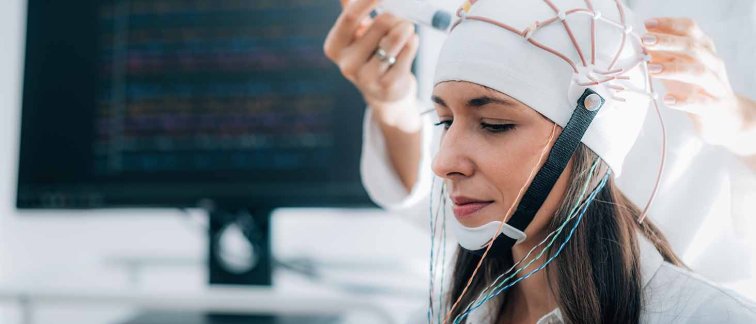Beyond the 'one-size-fits-all' approach
Until now, the choice for a specific antidepressant was mainly made based on experience and estimation of the prescribing physician. The probability of successful treatment is known to be 30-40%, yet there are dozens of different antidepressant treatments with different mechanisms of action. As a result, it can often take up to three or four different courses of treatment before a patient responds adequately. The use of biomarkers, and therefore measurable predictability, greatly increases the effectiveness of treatment, and can lead to a patient receiving the antidepressant that works for them sooner, as opposed by a trial-and-error approach. This is a major step toward biomarker-based stratified psychiatry.
Scientific breakthrough
Researchers from Synaeda Psycho Medical Center and Research Institute Brainclinics, in collaboration with Amsterdam UMC, Twente University and Duke University (North Carolina, USA), have developed an algorithm that can accurately predict the effectiveness of the three most commonly prescribed antidepressants per individual. By applying this algorithm in practice, the researchers saw that the chance of full recovery (remission) almost doubled, compared to treatment as prescribed by the psychiatrist. This is the very first study worldwide to show that brain activity is a better predictor than the diagnosis of 'depression' per se as applied in practice.
How was the study conducted?
In 195 outpatients with major depressive disorder, a brief brain examination, or EEG, was administered 8 weeks prior to treatment with antidepressants. This group was divided into two groups: 108 of them received a treatment based on the outcome of the EEG examination (thus using the biomarkers found), and the remaining 87 patients received the usual treatment (Treatment As Usual). The outcomes were then compared.
Publication
The results of the study are published in European Neuropsychopharmacology ‘EEG Biomarker informed prescription of antidepressants in MDD: A feasibility trial'.
Source: Brain Clinics

